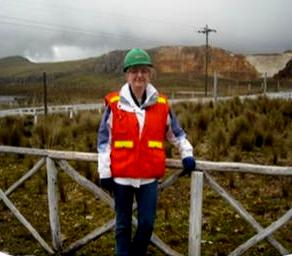What We Do
The Office of the Extractive Sector Corporate Social Responsibility (CSR) Counsellor is a resource that people can draw on to reduce and to constructively resolve conflict between project-affected communities and Canadian extractive sector companies outside of Canada. The Office has two roles – an advisory role, and a dispute resolution role.
Our advisory role focuses on implementation of the endorsed performance standards and dispute reduction and prevention. We engage in activities and bring people from different perspectives together to promote learning.
 In fulfilling our dispute resolution role, the Office of the CSR Counsellor provides a new option for constructive resolution of disputes between Canadian mining, oil and gas companies and project-affected stakeholders outside of Canada. Our problem-solving mechanism, called the Review Process, emphasizes dialogue and constructive dispute resolution. It is about people with different views and interests working together to find mutually acceptable solutions to resolve disputes or issues.
In fulfilling our dispute resolution role, the Office of the CSR Counsellor provides a new option for constructive resolution of disputes between Canadian mining, oil and gas companies and project-affected stakeholders outside of Canada. Our problem-solving mechanism, called the Review Process, emphasizes dialogue and constructive dispute resolution. It is about people with different views and interests working together to find mutually acceptable solutions to resolve disputes or issues.
The Office of the CSR Counsellor is a third party neutral in disputes. This means that we help people find solutions, but we do not take sides. In many cases, a neutral third party can help people work together better. In our work, the Office of the CSR Counsellor uses interest-based mutual gains dispute resolution. This means that we seek to uncover the real reason or motivation behind the dispute and find out what is important to the participants in reaching a solution.
The process is designed to assist participants, working in good faith, in reaching a mutually agreeable solution to issues. Since they have an active opportunity to shape the resolution, the outcome may be more durable or meet their needs better.
The joint problem-solving approach used by the Office of the CSR Counsellor may help in the following ways:
- Find workable and lasting solutions that allow parties to maintain control and input in a process
- Improve trust and working relationships
- Build trust in scientific information – getting beyond "dueling experts"
- Generate a better understanding of the situation and get to the root cause of conflicts or issues
- Help people figure out how to implement a performance standard in a way that best meets interests
There is no cost to use the Review Process.
- Date Modified: